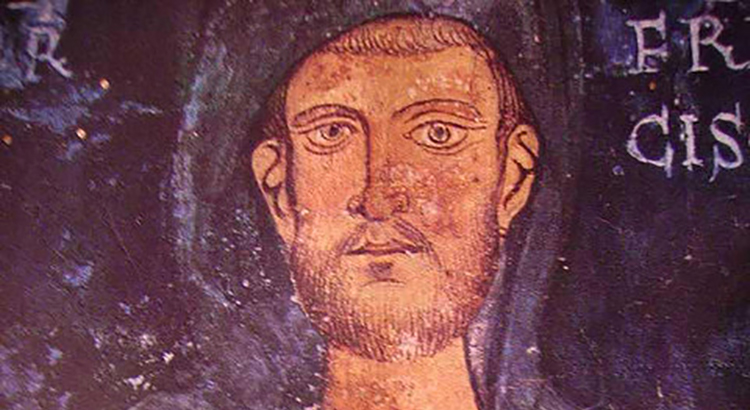Prayer for peace
The prayer for peace is held in the Basilica of Santa Maria in Trastevere.
Reading of the Word of God
Alleluia, alleluia, alleluia
This is the Gospel of the poor,
liberation for the imprisoned,
sight for the blind,
freedom for the oppressed.
Alleluia, alleluia, alleluia
Luke 7,1-10
When he had come to the end of all he wanted the people to hear, he went into Capernaum. A centurion there had a servant, a favourite of his, who was sick and near death. Having heard about Jesus he sent some Jewish elders to him to ask him to come and heal his servant. When they came to Jesus they pleaded earnestly with him saying, 'He deserves this of you, because he is well disposed towards our people; he built us our synagogue himself.' So Jesus went with them, and was not very far from the house when the centurion sent word to him by some friends to say to him, 'Sir, do not put yourself to any trouble because I am not worthy to have you under my roof; and that is why I did not presume to come to you myself; let my boy be cured by your giving the word. For I am under authority myself, and have soldiers under me; and I say to one man, "Go," and he goes; to another, "Come here," and he comes; to my servant, "Do this," and he does it.' When Jesus heard these words he was astonished at him and, turning round, said to the crowd following him, 'I tell you, not even in Israel have I found faith as great as this.' And when the messengers got back to the house they found the servant in perfect health.
Alleluia, alleluia, alleluia
The Son of Man came to serve,
whoever wants to be great
should become servant of all.
Alleluia, alleluia, alleluia
Jesus enter Capernaum. There is a Roman centurion, a pagan, who, though a representative of the oppressor, shows a special care for the Jews, so much so that he helped build the local synagogue. He is very worried for his servant, who had fallen gravely ill. He well knows that as a pagan he cannot be so bold as to draw near to the teacher. Three attitudes are apparent in this Roman soldier: the first two are love for his servant (he treats him like a son) and his boundless trust in the young prophet from Nazareth; then his unworthiness before Jesus, so much so that he is thinks he is not worthy to go to him. While Jesus is drawing near to his house, he sends some other friends to tell him to not be bothered any further. His faith makes him say those words that all Christians pronounce today during the Eucharistic liturgy: "O Lord, I am not worthy to have you under my roof; but only speak the word and let my servant be healed." This pagan centurion becomes the image of the true believer, of the one who recognizes his or her own unworthiness and who believes in the power of Jesus' word; one word of his is enough to save and to be saved. The words which come from Jesus' mouth have the power of God and of his love. Hering the words the centurion had said, Jesus admired and turning to the crowd that was following him he said of him, "I tell you, not even in Israel have I found such faith."
